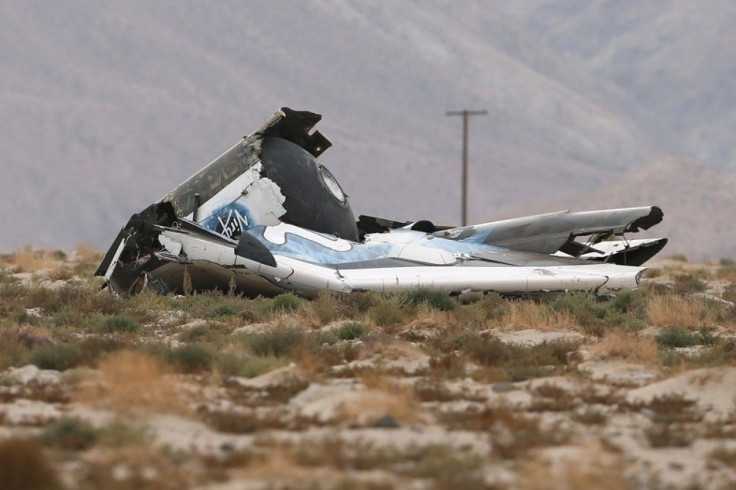Virgin Atlantic Space Tourism Rocket Crashes At Test Flight, 1 Dead

The switch to a new type of fuel could have triggered the unexpected crash of Virgin Atlantic's space tourism rocket on Friday during its test flight at the Mojave Air and Spaceport in California.
Reports said that Virgin Atlantic has confirmed the crash of the SpaceShipTwo after it took off at 9:19 am, while the California Highway Patrol Group reported one person died and another was hurt by the accident.
Gizmondo cited an Aviation Week report that said the flight was testing the performance of a grain that is polyamide based to replace the old fuel, polybutadiene - which is a form of rubber. The shift aimed to discover a fuel that would provide a longer and more energetic burn "with lower thrust oscillations."
It was the first trial for the spaceship using the new fuel in more than nine month.
In a statement, Virgin Atlantic said, "During the test, the vehicle suffered a serious anomaly resulting in the loss of the vehicle. The WhiteKnightTwo carrier aircraft landed safely. Our first concern is the status of the pilots, which us unknown at this time."
The debris of the spacecraft are scattered near Koehn Lake as well as all over the road, according to tweets of residents who live in the area.
The accident dents Virgin Atlantic's space tourism ambition. The crash also places a big question mark on the financial viability of the Spaceport America facility in New Mexico which is taxpayer funded on the premise that it would later provide jobs and boost the state's economy.
Virgin Atlantic is supposed to be the main tenant of Spaceport America where the $250,000 flights would start.
Joel Glenn Brenner, a former Washington Post reporter who covered Virgin Atlantic, said the enthusiasm of Virgin Atlantic is not matched with its technology. He told CNN, "They don't have any vehicle anywhere near completion ... This really markets the end what they can do."
YouTube/Grizzly Battle




















